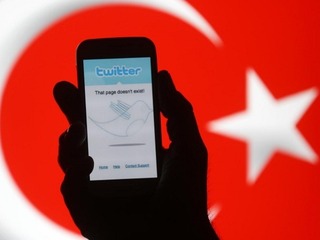
As you may recall, Twitter and Turkey had a bit of a showdown last year, after the service was banned in the country following accusations of corruption against the Prime Minister.
Everything eventually went back to normal, as Twitter was restored, but that does not mean that things are just fine not, and are running smoothly between them. As the company’s latest transparency report shows, Turkey is ramping up its efforts to use Twitter to go after its citizens.
In the second half of 2014, the Turkish government made 356 requests for information on 496 accounts, an increase of over 150% from the first half of the year. Twitter did not provide information in response to any of those requests.
The country still pales in comparison to the United States with that figure, though; the U.S. made 1,622 requests, by far the most of any country, on 3,299 accounts. Twitter produced “some information” in 80% of those cases.
Other countries with high numbers of requests include Japan, with 288; the United Kingdom, with 116; and Russia, with 108. Overall, there was an increase of 40% in government requests for Twitter user account information since the last report was released.
When it came to government request for removal of data, that is where Turkey really stands out. It made a total of 477 removal requests in the last six months, on 2,642 accounts. That number is alarmingly high; no other country had even 100 requests, with Russia coming in second with 91. As you’d expect, Turkish requests “generally focused on claimed violations of personal rights (such as defamation) of both private citizens and government officials,” Twitter wrote in a blog post.
Unlike with the government information requests, Twitter complied in 50% of Turkey’s requests for removal, but not without a fight: it filed court objections in response to over 70% of the Turkish court orders we received. It won 5% of those appeals, lost 80% , and still has 15% pending with the courts.
Finally, the report also broke down Digital Millennium Copyright Act (DMCA) takedown notices. There were 16,648 notices in the last six months, up from 9,199, or 81% from the previous report. In 66% of those cases, some material was removed.
Twitter vs Turkey
The fact that Turkey is still trying get information off of Twitter, and increasingly use the service to gain information about its citizens, might mean that the two sides are, once again, going to go head to head.
In March, the country banned Twitter after Prime Minister Tayyip Erdogan was accused of corruption on the service. The ban also happened to take place around a week before local elections were to take place in the country on March 30.
Of course, neither of those is not the official reason the government is giving for the move. Instead, they accused Twitter of refusing to remove certain links from its site, which have been deemed illegal by the country’s courts. After two weeks, the courts ordered the government to turn the service back on.
After that defeat, the government vowed to go after Twitter again, this time regarding its taxes.
In addition to Twitter, the Turkish government also banned YouTube last year. The service was shut down on March 27th after a video appeared on the site with audio from a conversation between Turkey’s foreign minister, spy chief, and a top general in a high-security meeting that centered on the military situation in Syria. A court deemed that ban unconstitutional, saying that it was too broad. The decision still allowed the government to ban 15 individual videos.
(Image source: redherring.com)




















